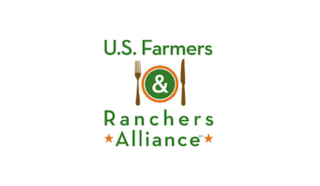
A farmer is a person engaged in agriculture, raising living organisms for food or raw materials. The term usually applies to people who do some combination of raising field crops, orchards, vineyards, poultry, or other livestock. A farmer might own the farmland or might work as a laborer on land owned by others. In most developed economies, a "farmer" is usually a farm owner (landowner), while employees of the farm are known as farm workers. However, in other older definitions a farmer was a person who promotes or improves the growth of plants, land, or crops or raises animals by labor and attention.

A farm is an area of land that is devoted primarily to agricultural processes with the primary objective of producing food and other crops; it is the basic facility in food production. The name is used for specialized units such as arable farms, vegetable farms, fruit farms, dairy, pig and poultry farms, and land used for the production of natural fiber, biofuel, and other commodities. It includes ranches, feedlots, orchards, plantations and estates, smallholdings, and hobby farms, and includes the farmhouse and agricultural buildings as well as the land. In modern times, the term has been extended so as to include such industrial operations as wind farms and fish farms, both of which can operate on land or at sea.
Organic farming, also known as organic agriculture or ecological farming or biological farming, is an agricultural system that uses fertilizers of organic origin such as compost manure, green manure, and bone meal and places emphasis on techniques such as crop rotation and companion planting. It originated early in the 20th century in reaction to rapidly changing farming practices. Indeed, so-called "organic pioneers" wanted to keep farming with nature, without being dependent on external inputs. Certified organic agriculture accounts for 70 million hectares globally, with over half of that total in Australia. Biological pest control, mixed cropping, and the fostering of insect predators are encouraged. Organic standards are designed to allow the use of naturally-occurring substances while prohibiting or severely limiting synthetic substances. For instance, naturally-occurring pesticides such as garlic extract, bicarbonate of soda, or pyrethrin which is found naturally in the Chrysanthemum flower are permitted, while synthetic fertilizers and pesticides such as glyphosate are prohibited. Synthetic substances that are allowed, only in exceptional circumstances, include, for example, copper sulfate, elemental sulfur, and veterinary drugs. Genetically modified organisms, nanomaterials, human sewage sludge, plant growth regulators, hormones, and antibiotic use in livestock husbandry are prohibited. Organic farming positively impacts sustainability, self-sufficiency, autonomy and independence, health, animal welfare, food security, and food safety. Organic farming can therefore be seen as part of the solution to the impacts of climate change, as also established by the Food and Agriculture Organisation (FAO).

Polyface Farm is a farm located in rural Swoope, Virginia, run by Joel Salatin and his family. The farm is driven using unconventional methods with the goal of "emotionally, economically and environmentally enhancing agriculture". This farm is where Salatin developed and put into practice many of his most significant agricultural methods. These include direct marketing of meats and produce to consumers, pastured-poultry, grass-fed beef and the rotation method which makes his farm more like an ecological system than conventional farming. Polyface Farm operates a farm store on-site where consumers go to pick up their products.

Animal husbandry is the branch of agriculture concerned with animals that are raised for meat, fibre, milk, or other products. It includes day-to-day care, management, production, nutrition, selective breeding, and the raising of livestock. Husbandry has a long history, starting with the Neolithic Revolution when animals were first domesticated, from around 13,000 BC onwards, predating farming of the first crops. During the period of ancient societies like ancient Egypt, cattle, sheep, goats, and pigs were being raised on farms.

Agriculture is a major industry in the United States, which is a net exporter of food. As of the 2017 census of agriculture, there were 2.04 million farms, covering an area of 900 million acres (1,400,000 sq mi), an average of 441 acres per farm.

Canada is one of the largest agricultural producers and exporters in the world. As with other developed nations, the proportion of the population agriculture employed and agricultural GDP as a percentage of the national GDP fell dramatically over the 20th century, but it remains an important element of the Canadian economy. A wide range of agriculture is practised in Canada from Newfoundland on the Atlantic to British Columbia on the Pacific. In the federal government, overview of Canadian agriculture is the responsibility of the Department of Agriculture and Agri-Food.

Organic egg production is the production of eggs through organic means. In this process, the poultry are fed organic feed. According to the United States Department of Agriculture, organic means that the laying hens must have access to the outdoors and cannot be raised in cages. Only natural molting can occur within the flock; forced molting is not allowed. Organic certification also requires maintenance of basic animal welfare standards.

Industrial agriculture is a form of modern farming that refers to the industrialized production of crops and animals and animal products like eggs or milk. The methods of industrial agriculture include innovation in agricultural machinery and farming methods, genetic technology, techniques for achieving economies of scale in production, the creation of new markets for consumption, the application of patent protection to genetic information, and global trade. These methods are widespread in developed nations and increasingly prevalent worldwide. Most of the meat, dairy, eggs, fruits and vegetables available in supermarkets are produced in this way.
Intensive animal farming, industrial livestock production, and macro-farms, also known as factory farming, is a type of intensive agriculture, specifically an approach to animal husbandry designed to maximize production while minimizing costs. To achieve this, agribusinesses keep livestock such as cattle, poultry, and fish at high stocking densities, at large scale, and using modern machinery, biotechnology, and global trade. The main products of this industry are meat, milk and eggs for human consumption.

Poultry farming is the form of animal husbandry which raises domesticated birds such as chickens, ducks, turkeys and geese to produce meat or eggs for food. Poultry – mostly chickens – are farmed in great numbers. More than 60 billion chickens are killed for consumption annually. Chickens raised for eggs are known as layers, while chickens raised for meat are called broilers.

Animal feed is food given to domestic animals, especially livestock, in the course of animal husbandry. There are two basic types: fodder and forage. Used alone, the word feed more often refers to fodder. Animal feed is an important input to animal agriculture, and is frequently the main cost of the raising or keeping of animals. Farms typically try to reduce cost for this food, by growing their own, grazing animals, or supplementing expensive feeds with substitutes, such as food waste like spent grain from beer brewing.

Food, Inc. is a 2008 American documentary film directed by Robert Kenner and narrated by Michael Pollan and Eric Schlosser. It examines corporate farming in the United States, concluding that agribusiness produces food that is unhealthy in a way that is environmentally harmful and abusive of both animals and employees. The film received positive reviews and was nominated for several awards, including the Academy Award for Best Documentary Feature and the Independent Spirit Award for Best Documentary Feature. A sequel, Food, Inc. 2 was released on April 12, 2024.

Livestock are the domesticated animals raised in an agricultural setting in order to provide labour and produce diversified products for consumption such as meat, eggs, milk, fur, leather, and wool. The term is sometimes used to refer solely to animals who are raised for consumption, and sometimes used to refer solely to farmed ruminants, such as cattle, sheep, and goats. Horses are considered livestock in the United States. The USDA classifies pork, veal, beef, and lamb (mutton) as livestock, and all livestock as red meat. Poultry and fish are not included in the category. The latter is likely due to the fact that fish products are not governed by the USDA, but by the FDA.

Manure is organic matter that is used as organic fertilizer in agriculture. Most manure consists of animal feces; other sources include compost and green manure. Manures contribute to the fertility of soil by adding organic matter and nutrients, such as nitrogen, that are utilised by bacteria, fungi and other organisms in the soil. Higher organisms then feed on the fungi and bacteria in a chain of life that comprises the soil food web.
Arkansas Farm Bureau Federation (ArFB) is a non-profit, grassroots organization dedicated to agricultural advocacy. ArFB represents the interests of farmers and rural communities throughout the state of Arkansas through policy development, lobbying and other programs.

Antibiotic use in livestock is the use of antibiotics for any purpose in the husbandry of livestock, which includes treatment when ill (therapeutic), treatment of a group of animals when at least one is diagnosed with clinical infection (metaphylaxis), and preventative treatment (prophylaxis). Antibiotics are an important tool to treat animal as well as human disease, safeguard animal health and welfare, and support food safety. However, used irresponsibly, this may lead to antibiotic resistance which may impact human, animal and environmental health.

The U.S. Farmers and Ranchers Alliance is an alliance of agriculture related interest groups and organizations that promote industrial agriculture in the United States. Their aim is to promote a positive image of modern agricultural practices. They are supported by checkoff funds from the United States Department of Agriculture and by cooperate donations. The alliance has been criticized for a bias towards corporate agricultural practices.
Poultry farming in Bangladesh is the process of keeping various types of birds for meat, egg, feather, or sale. In Bangladesh, poultry birds are primarily used for meat and egg consumption.
Antibiotic use in the United States poultry farming industry is the controversial prophylactic use of antibiotics in the country's poultry farming industry. It differs from the common practice in Europe, where antibiotics for growth promotion were disallowed in the 1950s.















